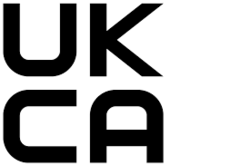What to do about BREXIT and UKCA marking
15 Dec 2020
What to do about BREXIT and UKCA marking
Excellent guidance is provided by: https://www.gov.uk/guidance/placing-manufactured-goods-on-the-market-in-great-britain-from-1-january-2021.
I strongly recommend that you read this guidance, and its linked documents, carefully.
But the important issue for most manufacturers and their agents is that it seems clear that – where a product doesn’t require mandatory Notified Body (NB) or other 3rd-party conformity assessments under EU or UK regulations – then they can still use the CE marking for supplies to the UK during 2021.
For such products, this is a trivial administrative and labelling exercise and there is no reason not to do it sooner, rather than risk having problems later. It is a good idea to start applying the UKCA marking to your products well before the deadline of Dec 31st 2021.
The EU and UK regulations are the same at the time of writing, and likely to stay the same for most/all of 2021. But as soon as an EU Directive or Regulation starts to deviate from the UK’s regulations the above simple dual-marking will not necessarily be available.
The above guidance actually says (in italics):
Using the UKCA marking
You will need to use the new UKCA marking immediately after 1 January 2021 if all of the following apply. Your product:
- is covered by legislation which requires the UKCA marking
- requires mandatory third-party conformity assessment
- conformity assessment has been carried out by a UK conformity assessment body and you haven’t transferred your conformity assessment files from your UK body to an EU recognised body before 1 January 2021
If you want to supply goods in Northern Ireland (NI), it appears that either the CE marking will suffice, or the special UKNI marking.
I haven’t studied the details yet, but I understand that if goods comply with both the EU requirements and UK (not NI) requirements and are marked with CE and UKCA, they should then be OK for NI one way or the other, at least during 2021!
But please do your own research, don’t rely on my comments above. And, as before, if UKNI marking will be required from 1st January 2022 it is much better to deal with it as soon as you can during 2021.
The above means that a new product that was not available on the UK Market before 1st Jan 2021 and requires mandatory 3rd-party assessment, has to comply with the new UK requirements in addition to any requirements for making it available in the EU, immediately from 1st January 2021.
This apparently means that it must carry the UKCA marking, and any mandatory NB assessments must be from a UK-registered NB.
If the same product is to also to be supplied to the EU’s single market, it would need CE marking as well; and any mandatory NB assessments must be from an EU-registered NB.
So it is good news is that there are some EU NBs who are also UK NBs, and vice-versa, for example TUV-SUD.
At the moment, the technical compliance requirements are the same for the UK and the EU, but this will probably change in the future.
But nothing is ever simple, and for some products there are important differences from my summary above. The guidance states (in italics) :
You must follow different rules if you’re placing the following goods on the UK market:
- chemicals
- medicines
- vehicles
- aerospace
Goods covered by national rules (non-harmonised)
You must make sure that your goods meet UK rules. You’ll need to do this even if they were previously sold in an EU country.
Check the UK product safety rules to find out what you need to do.
Other goods
There are also special rules if you’re placing the following goods on the UK market:
- medical devices
- rail interoperability constituents
- construction products
- civil explosives
- products requiring ecodesign and energy labelling
- cosmetics (further guidance will be published shortly)
I hope this brief summary helps!
Get more from EMC Standards
EMC Standards is a world-leading resource for all things EMC and EMI related. Our website is packed full of both free and paid-for content, including:
- Online quiz
- Webinars
- Training quiz
- And much more!

Electromagnetic Engineering (EMgineering) is the basis for proven good design practices for signal integrity (SI), power integrity (PI), and the control of EMI emissions and immunity (EMC).
Our aim is to help people learn how to more quickly and cost-effectively design and manufacture electronic equipment (products, systems, installations, etc.) to meet functional (i.e. SI/PI) specifications and conform to EMC standards, directives and other requirements.
Such equipment should benefit from reduced warranty costs and financial risks, whilst improving uptime, competitiveness and profitability.
We also cover basic good electrical safety engineering; and the Risk Management of Electromagnetic Disturbances / EMI, whether for Functional Safety or other types of risk.
Join EMC standards TODAY!
